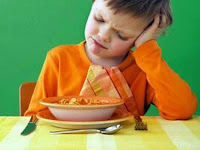Preventing Temper Tantrums in Children with Asperger's Syndrome

Kids with Aspergers (high functioning autism) have difficulty in communication, a wish for everything to stay the same, and sticking to their favorite routines. They can get very angry and upset if something unexpected happens or when they do not understand what they are told or what is expected from them . Their frustration levels are much higher and even the slightest thing can set them off. To outsiders their sometimes violent tantrums seem to be without a cause. As a grandparent of a boy with Aspergers, I know from experience there is always a reason for him to express his frustration in such a way. Typically, rages in Aspergers kids occur when the youngster has experienced a maximum sensory overload and can no longer interpret the environment stimuli occurring around them. The rages and outbursts may occur because of miscommunication between your youngster and another youngster, or when your youngster is simply not able to interpret the communication occurring in their e

